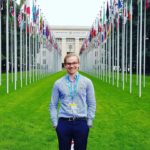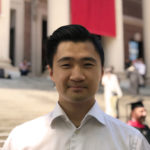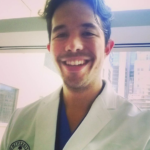The English language cannot lay claim to the origins of surgical practice. Billroth and Langenbeck described their work in German; Dupuytren and Larrey in French; and Sushrutha in Sanskrit. During the twentieth century, English became the lingua franca of science (1). Its current status in academic communication creates both advantages and liabilities for academic global surgeons seeking to improve access to surgical care worldwide. This community coalesced in 2015, following the publication of the Lancet Commission on Global Surgery and the passing of World Health Assembly Resolution 68.15. While progress toward universal access to safe, affordable surgical care when needed has been made since, we recognize that the knowledge synthesised by the global surgery community cannot be equitably accessed. This is particularly true for scientists and policymakers who do not speak or read English.
The dominance of English extends beyond the surgical literature: the proportion of articles published in English indexed on PubMed grew from 62.3% in 1967-1976 to 89.3% in 1997-2006. This reflects the ascendency of the Anglo-American scientific community in the synthesis and marketization of scientific knowledge over this period. Of PubMed-indexed surgical articles published in 2017, we found that 96.4% were published in English while on SciELO, an open access database with journals from low- and middle-income countries, 63% of surgical articles published during the same year are in English. One advantage of this unilingual discourse is that researchers, policy makers, and public health experts need only one language to participate in the scientific dialogue. Academics in countries where the de facto language is not English are faced with the choice of publishing their work in English or a national language. Choosing the former dramatically increases the visibility and citation rates of their research. However, publishing in a native language may make the work more accessible and relevant nationally. A disadvantage of elevating English as the primary language of surgical science is that medical trainees are forced to dedicate time and effort to learning the language, at a cost to skills development in other domains. Further, it imposes the English academic discourse style on those trained in other traditions, limiting the diversity of thought in the construction of surgical knowledge. Finally, the populations of regions where access to surgery is poorest are prevented from reading research performed on them or about them. This raises ethical questions about the beneficence of research published in English without translation.
A simple policy solution to this problem exists which allows for the benefit of unilingual discourse while allowing a more equitable access to knowledge for global surgery articles published in English, journals can require a summary or abstract of the article to be translated into at least one language spoken by the population under study. For articles published in another language, a summary should be translated into English to promote the visibility of the research and ensure that important data are not missed by the global surgery community. This community has gathered to date through the common use of English. Yet, as five billion people still lack access to safe, affordable surgical care, we echo the linguistic scholars who declare that “English is not enough”.
About the authors:
 Zineb Bentounsi, MD is completing her masters in International Health and Tropical Medicine at the University of Oxford. Twitter @ZinebBentounsi
Zineb Bentounsi, MD is completing her masters in International Health and Tropical Medicine at the University of Oxford. Twitter @ZinebBentounsi
 Dominique Vervoort, MD is a Research Associate at the Program in Global Surgery and Social Change at Harvard Medical School. Twitter @DVervoort94
Dominique Vervoort, MD is a Research Associate at the Program in Global Surgery and Social Change at Harvard Medical School. Twitter @DVervoort94

Gustaf Drevin is a final-year medical student at Karolinska Institutet, Sweden.

Linda Pohl, MD is a Resident in General Surgery and completing her masters in medicine with a focus on global surgery at the University of Cape Town.Twitter @LindaPohlSmith
 Josh Ng-Kamstra, MD, MPH is a General Surgeon completing a critical care medicine fellowship at the University of Calgary. Twitter @JoshNgKamstra
Josh Ng-Kamstra, MD, MPH is a General Surgeon completing a critical care medicine fellowship at the University of Calgary. Twitter @JoshNgKamstra
Competing Interests : All authors have read and understood the BMJ Group policy on declaration of interests and declare they have nothing to declare.
References:
(1)Crystal, D. English and the communication of science. Moderna Sprak. 2006;100(1):20-33.